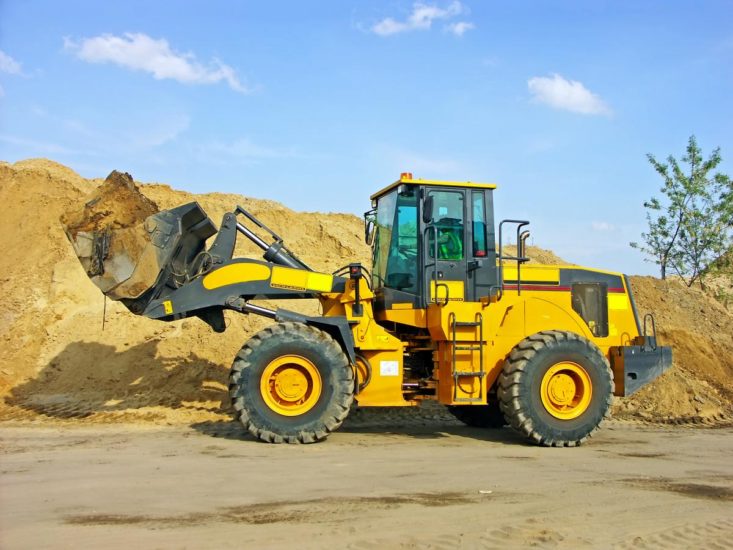Forklift Rental Solutions for Industrial and Commercial Usage
Forklift Rental Solutions for Industrial and Commercial Usage
Blog Article
Renting Vs. Acquiring Building Equipment: Making the Right Option for Your Project
When beginning on a building job, one of the essential decisions that forecast stakeholders and managers deal with is whether to rent out or get building tools. Both choices have their drawbacks and advantages, making the option an essential one in the task preparation process. The decision depends upon different elements such as cost factors to consider, job period, tools upkeep, versatility, risk, and scalability administration. Each component plays an important function in figuring out one of the most suitable course for the job's devices requirements. scissor lift rental. Let's check out these factors further to recognize just how they impact the decision-making process and eventually the success of the job.
Cost Factors To Consider
When evaluating the financial aspect of buying versus leasing building and construction tools, the long-lasting expenditures and upfront prices have to be very carefully considered. Leasing tools commonly calls for lower initial settlements compared to purchasing, making it an appealing alternative for temporary projects or professionals with spending plan restraints. Renting eliminates the demand for large funding investments and minimizes the economic threat related to tools ownership, such as upkeep and devaluation prices. Nonetheless, in the future, consistently leasing equipment can build up higher prices than buying, specifically for prolonged projects.
On the various other hand, buying building tools entails greater upfront expenses but can cause lasting cost savings, particularly for long-lasting projects or frequent users. Having devices supplies versatility, ease, and the possibility for resale value once the task is finished. Additionally, owning tools enables modification and familiarity with specific machinery, potentially boosting performance and efficiency on-site. Inevitably, the decision between getting and renting out construction devices depends upon the job's duration, frequency of usage, budget considerations, and long-term monetary objectives.
Job Duration

Conversely, for lasting projects or recurring construction job, getting tools might be the a lot more economical choice. Getting devices can cause cost financial savings in the lengthy run, especially if the equipment will certainly be often utilized. Moreover, having equipment provides a feeling of control over its accessibility and permits customization to fit certain job demands.

Equipment Upkeep
Provided the essential role task duration plays in determining the most affordable approach between acquiring and renting building devices, the emphasis currently moves in the direction of taking a look at the important facet of devices maintenance. On the other hand, owning tools needs an aggressive approach to maintenance to prevent breakdowns, guarantee security, and prolong the click here for more equipment's life-span. Eventually, a well-kept building and construction devices fleet, whether leased or possessed, is essential for the reliable and effective conclusion of building tasks.
Versatility and Scalability
In the realm of building and construction tools management, the element of adaptability and scalability holds substantial relevance for job performance and resource application. Opting to lease building tools gives a high level of adaptability as it permits the fast change of devices kinds and quantities based upon the progressing needs of a task. Renting enables professionals to access a variety of specific equipment that may be needed for specific jobs without the long-lasting commitment of possession. This versatility is specifically helpful for tasks with varying requirements or uncertain durations (construction equipment rentals).
Renting building and construction tools supplies the advantage of quickly scaling procedures up or down as job needs fluctuate. Specialists can quickly trade or include devices to match the job's changing needs without the restrictions of possessing possessions that may become underutilized or out-of-date.
Threat Administration
Reliable risk monitoring in building and construction devices operations is paramount to ensuring project success and mitigating possible financial losses. Building and construction jobs naturally entail various dangers, such as tools breakdowns, crashes, and task delays, which can substantially impact the job timeline and spending plan. By thoroughly taking into consideration the risks related to owning or renting building devices, project managers can make educated decisions to lessen these potential dangers.
Leasing building and construction equipment can provide article source a degree of danger reduction by moving the responsibility of repair and maintenance to the rental company. This can minimize the monetary worry on the job proprietor in instance of unforeseen devices failures (mini excavator rental). Additionally, renting out offers the flexibility to accessibility specialized devices for particular job phases, reducing the risk of owning underutilized equipment
On the various other hand, having building and construction equipment provides a sense of control over its usage and maintenance. Nevertheless, this likewise implies bearing the full responsibility for repair services, upkeep expenses, and depreciation, boosting the financial risks linked with equipment ownership. Cautious threat evaluation and consideration of variables such as project duration, tools use, and upkeep demands are crucial in identifying the most suitable alternative for reliable threat monitoring in building tasks.
Conclusion
To conclude, when making a decision in between renting and buying building tools, it is site here necessary to consider expense, job duration, devices maintenance, threat, flexibility, and scalability monitoring. Each factor plays a crucial function in figuring out one of the most suitable option for the project available. By meticulously examining these aspects, task managers can make an educated decision that lines up with their budget plan, timeline, and general job objectives.

Report this page